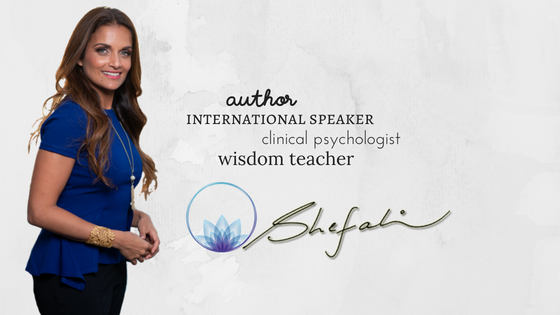Something is drastically amiss.
Use of medications and recreational drugs are on the rise.
Prisons are overflowing.
Divorce is rampant.
Wars are tearing countries apart.
The signs need not be clearer.
The writing is on the wall: We are desperately askew. Our ability to connect and love unconditionally is twisted. The path to Oneness is hidden amid gnarly branches of resentment, competition and deep-rooted separatism.
How did we get this way? Where did it all begin?
Well, the obvious place is the parent-child relationship. There is something amiss within this most-powerful of all relationships that appears to be laying the foundation for a deep discontentment amongst us. What is this missing element? Cannot be love. Surely all parents love their children. So then what is it?
I believe the missing element is this: Consciousness.
Parents balk at me when I say this.
?I AM already conscious? they say. Then, as if to prove the point, they proceed to outline the many ways that they are: Ballet classes, gymnastics, travels around the world, lovely birthday parties, fancy presents, and a fat savings account for an Ivy-league education. And if I am not convinced yet, they then belabor the point further: hours they sacrificed for their children working long hours so that they could afford a better life, things they exposed their children to that they were never exposed to, ways they pushed their children to excel so that they had a chance to succeed, and so on and so forth.
These are good parents. Lovely, devoted, sincere parents. Extremely parental parents. Responsible. However, none of these adjectives can replace the verb: conscious.
To be conscious means to engage in an active process of conscious evolvement. This, by definition means resistance to an over-attachment to the doing aspects of Life and a shift of energy to an engagement with the being aspects of Life.
No, very few of us can claim to be fully conscious.
Consciousness by its very definition is a work-in-progress. A state of evolution from unconscious thinking to conscious relating.
It is consciousness, not love (only) that has the power to teach us connection and Oneness. It is this – deep engagement and relatedness – that is lacking in our world today.
Connectivity is a language we learn in childhood. It is from this foundational place that our children engage with their future with a sense of togetherness and communal solidarity ? not just with their ?own kind,? but with the Universe itself.
This is what is amiss.
The world is ready for a new paradigm of parenting. Our children are thirsty for it.
The old paradigm of parenting is the foundation of separatist thought and philosophy. We do not realize it is, but it is.
The old paradigm of parenting rests on the ideals of incessant doing, power, control and hierarchy. This is precisely what creates a sense of separation between ourselves and our children. Our children in turn internalize this separation and project it onto the world around them. This is why our world has begun to look the way it does.
Union needs to replace divisiveness. Mutuality instead of rivalry. Oneness instead of separation.
It all begins in the parent-child relationship.
It is only when we dip beneath the traditional notions of what it means to be a parent that we will be afforded a glimpse of how we can truly create oneness with our children. To do this we need to understand the spiritual significance of why we became parents and more importantly, why our children came to us.
The spiritual purpose we became parents is to grow and transform. Specifically, to learn how to get in touch with those parts of ourselves that we have forgotten, discover where we have been wounded, and commit to new ways of being and living.
The reason parenting allows one of the most powerful opportunities to do this is because our children are able to be mirror our soul in a way few others can. They reflect back our light and our shadow in a manner that is incomparable. Because of their symbiosis and dependence on us, this mirror is particularly clear. While with others we can always say, ?this person is like this or that because of his or her parents,? with our children the spotlight always turns to us.
Unless we look at the others? in our lives, particularly our children, as the mirrors of our own spiritual development or un-development, we will not be able to use relationships as platforms for growth.
Once we realize that we became parents to learn a new spiritual language, we begin to understand why it is our children came to us. They too came to their parents ? us ? to learn how to become more whole. It is the interaction we both share with each other that makes us both aware of all that we yet have to learn together.
Once this paradigm is adopted, the axis of the relationship shifts. Although we adopt the role of the ?more powerful? one and definitely need to maintain this responsibility in terms of our children?s material care and concerns, our relationship now transcends the material.
Parent and child are now truly each other?s spiritual teachers and students. Each giving and receiving in a mutually reciprocal manner. There is no greater-than or lesser-than. Only oneness.
Once we tap into this sacred togetherness, we immediately become appreciative of the other?s role in our lives. We are indebted to our teachers. We begin to carry this sense of gratitude and uniting force within. This is what we project to the world without.
This new paradigm has the power to create a shift in every family.
No more illusions of power or control. Instead, only kinship and deep connection.
Engagement, relatedness, oneness.



